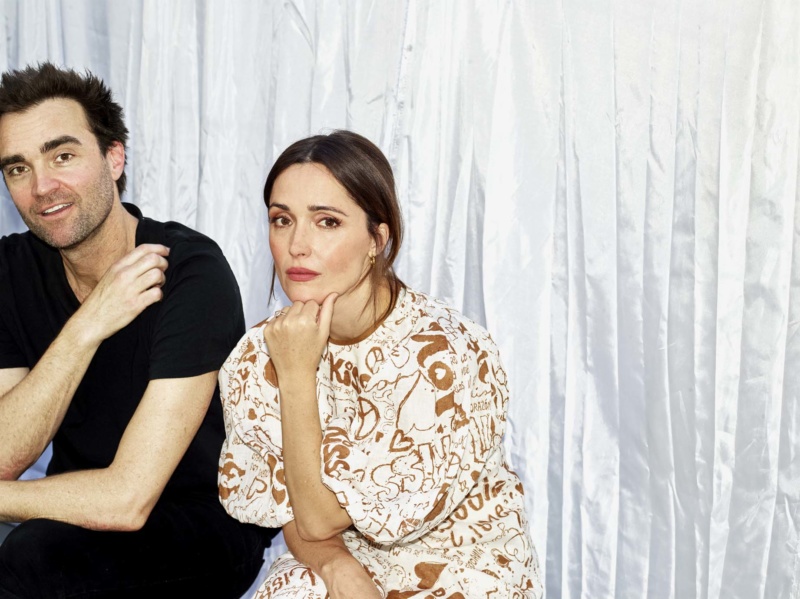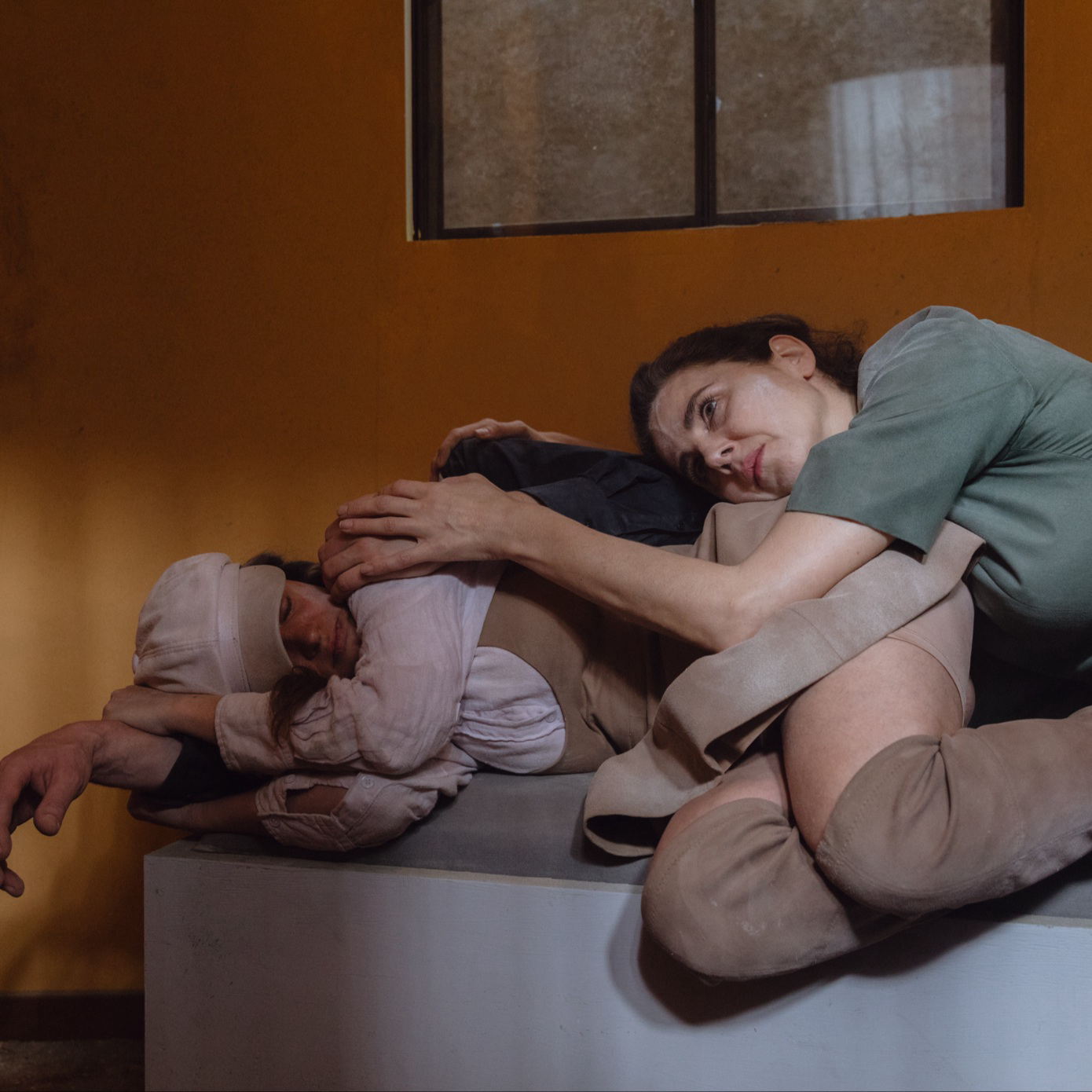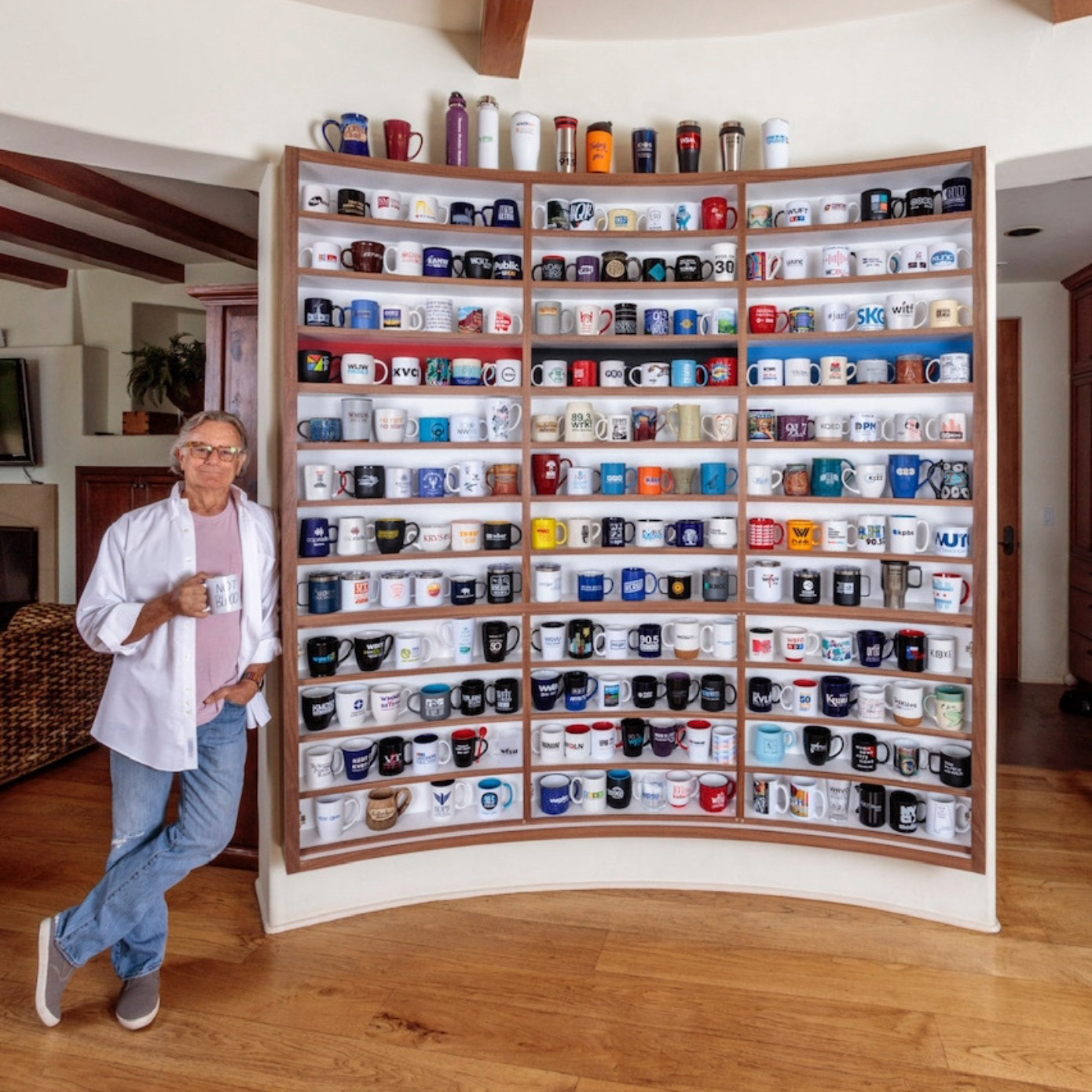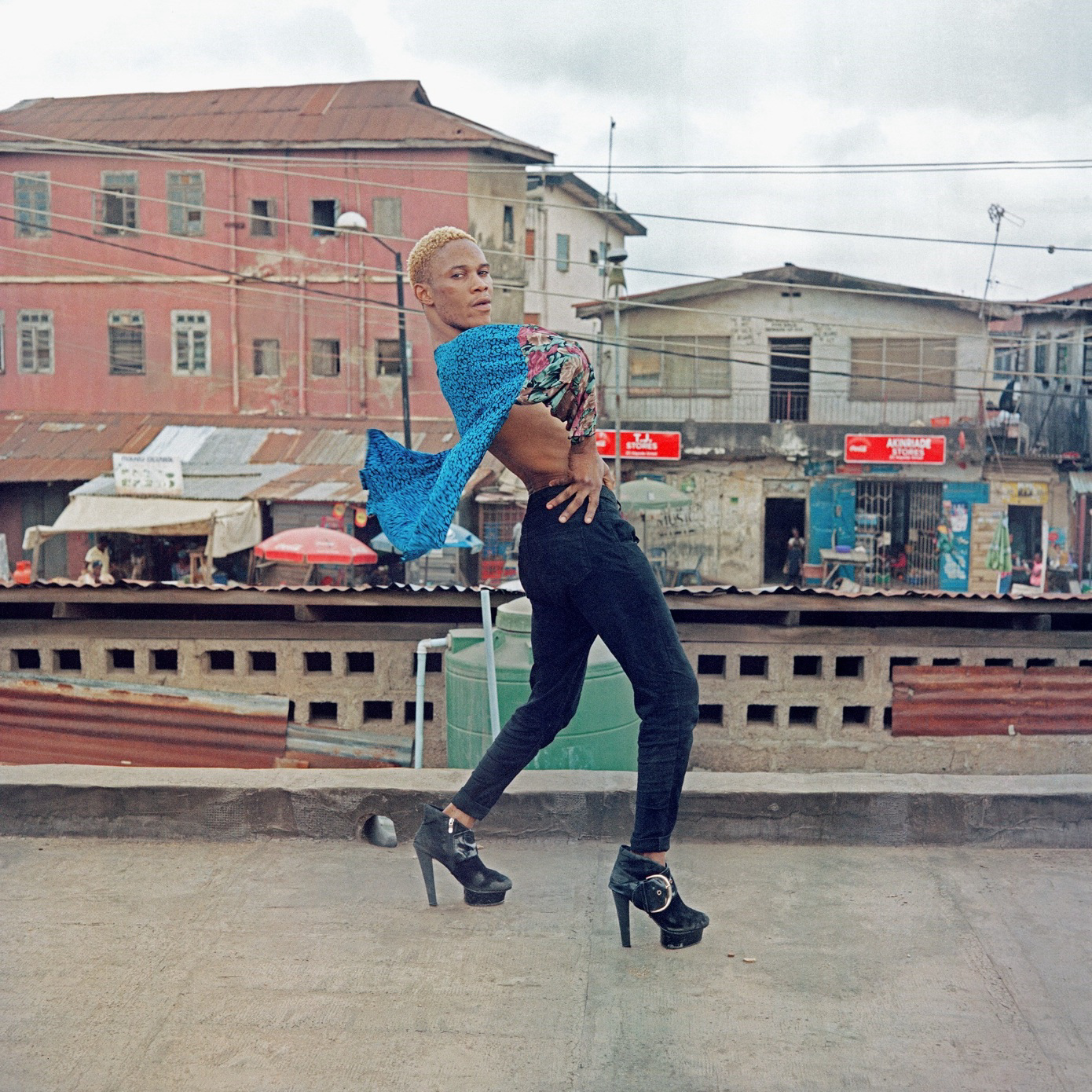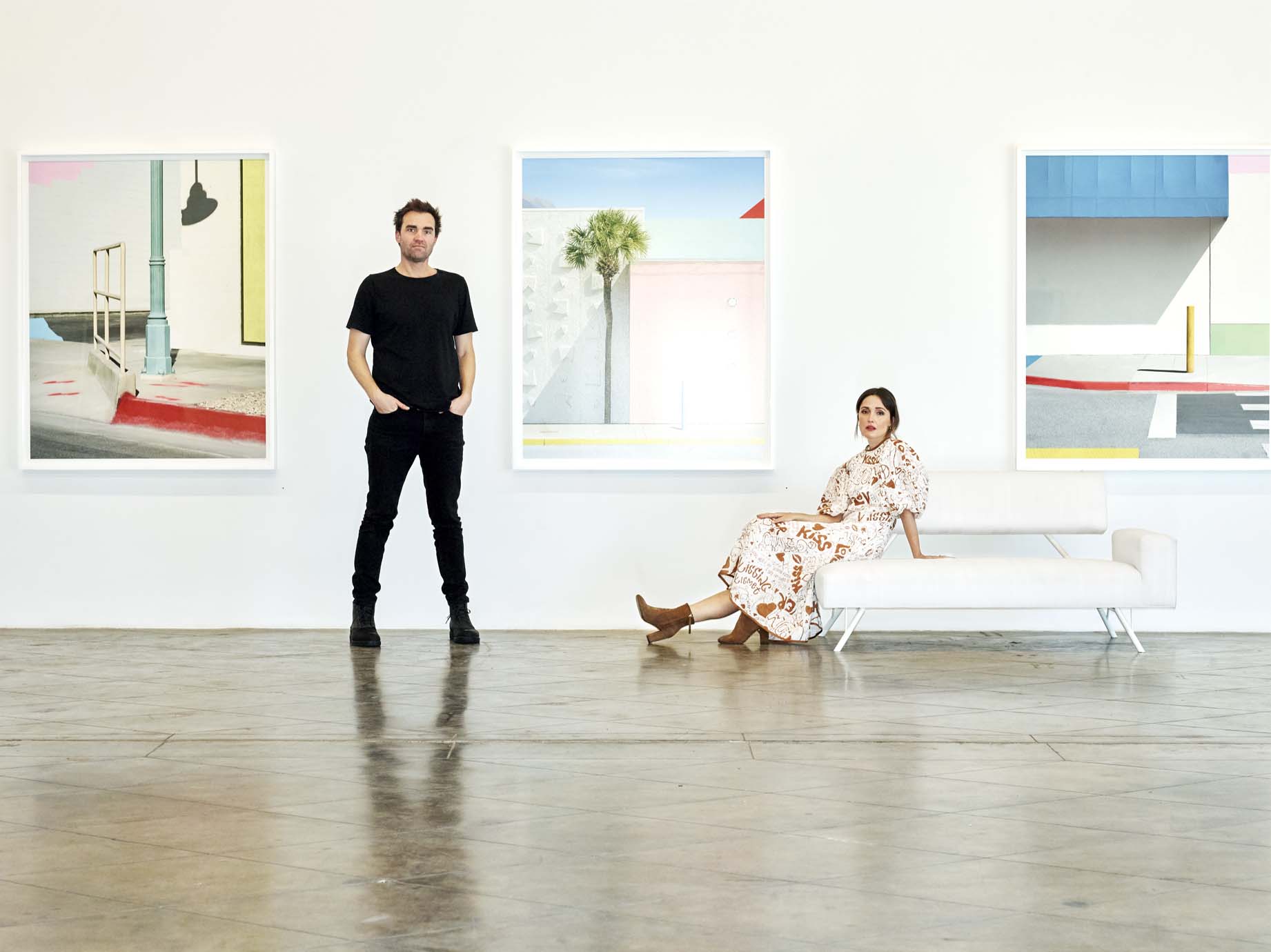
Actor Rose Byrne is best known for her role as Ellen Parsons on the series Damages and for her work in films such as the goddess of 1967, Troy, Bridesmaids, Mrs. America and Spy. Her brother, George, is a photographer whose large-scale studies of urban textures have an eerie clarity, rendering their subjects nearly abstract. Cultured caught up with the siblings to talk about growing up in Australia, being in Los Angeles and dream projects down the road.
When you were growing up, would you have imagined one another in the careers you’ve found?
Rose Byrne: Music was really George’s first love, he just loved the guitar. He was always in a band, always playing me music, introducing me to new music. Very much the head of music in our house. And then I remember as he got into high school, he became obsessed with certain artists and images, and it all really started to merge together with him heading off to art school for university. So, I did see that George was always going to be something creative.
George, same question, was Rose always the actress in the family?
George Byrne: 100%. Never a question. Rose benefited from having the laser beam early. It’s true you master things the more time you spend on them. Where I was flitting around, dipping my toe into different fields, Rose was passionate about performing from the beginning. Since she was a baby she was the entertainer of the family, the crack-up, the comedian, the impersonator—you could just wind her up and let her go at any moment, she was always ready.
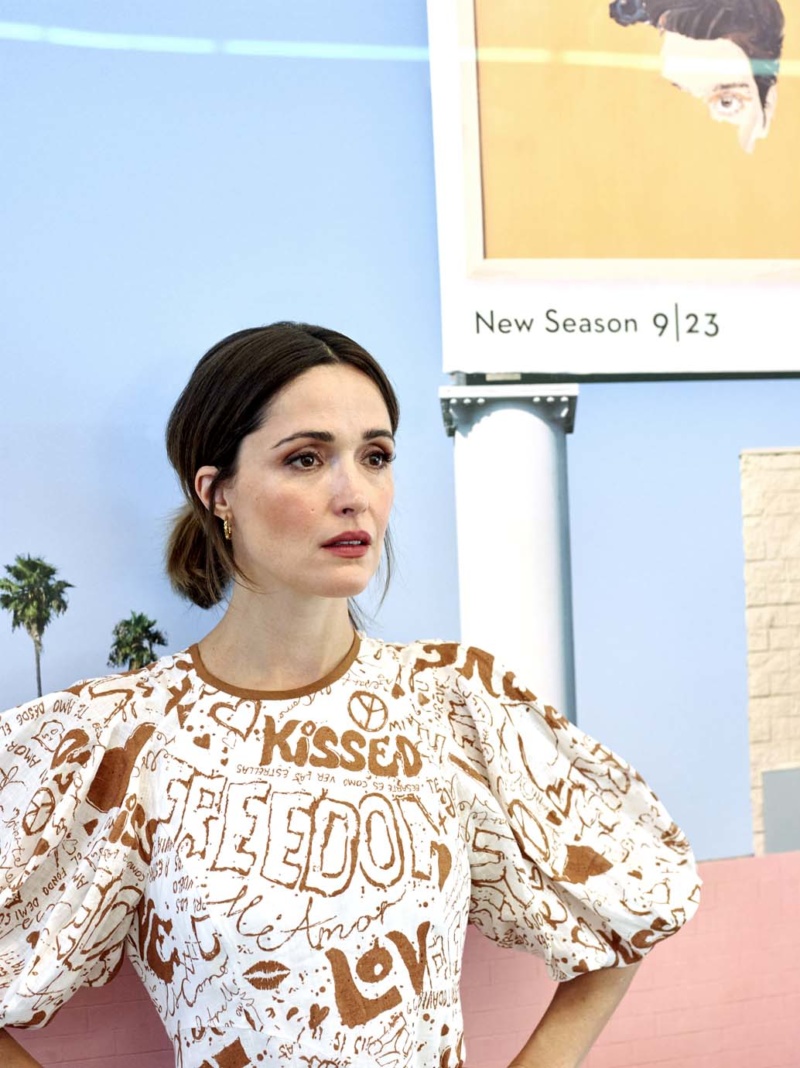
Does home, where you grew up, ever factor into your work? And if it doesn’t, how did you get that distance?
RB: Of course! I think it’s intrinsic to performance for sure. Australian actors have to be thoroughbreds because we have to be able to do theater, television and film. It’s a very small industry over there, so you really have to be able to bounce across all the different mediums to sustain an interesting career. Australians have a unique sense of humor and unique sensibility—to be flexible, give anything a “go” and shift from one genre or profession to another. There is also something interesting about being a foreigner here, always being a little bit of an alien.
GB: My whole practice is based on being a foreigner in an alien landscape, that’s the starting point of every series. Being from Australia, I think there is always a need to be outdoors. We grow up at the beach or in the bush, we are inclined to travel, and my work has a lot to do with discovery of new places and ways of seeing. I have a gallery in Sydney, and going back and forth really keeps me linked to home culturally.
How does where you live now factor into the work you do?
GB: Well for me, I wouldn’t be where I am now if I hadn’t moved to the United States. My whole practice right now is focused on exploring the landscape of Los Angeles, so being here is integral to my work. Coming here and having that reaction to the landscape was just an experience of pure intrigue, I was just really obsessed with it from the first day I got here. I didn’t know what I was going to do with it initially, but over the years, continuously shooting it and putting the pieces together and developing a style and series, I owe a lot to the city for what I’m doing.
RB: Well, this year we’ve been kind of living on the road, but I’ve been living in the States for a long time, and it factors in a lot. My children were born in America, I’m married to an American [actor Bobby Cannavale]. George and I were just discussing this today, the wildness of America—it’s just enthralling and endlessly enticing.
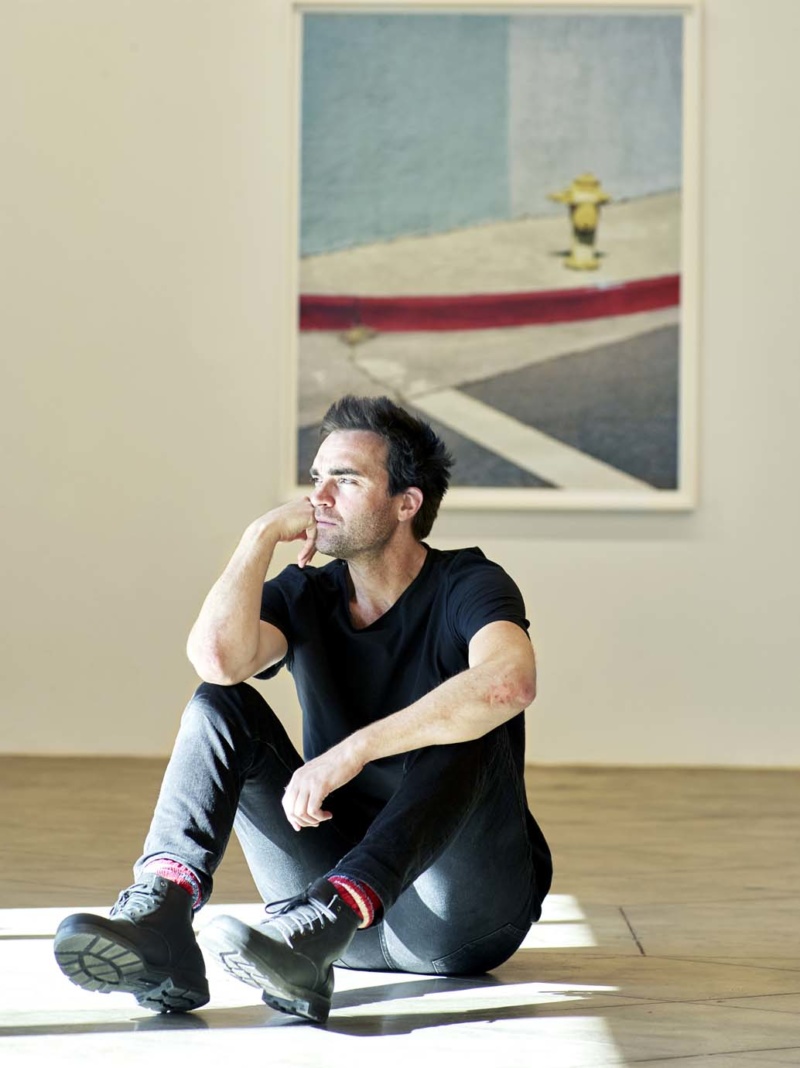
Do you see comedy in your images? What role does comedy play in creativity for you?
GB: I see dark comedy in my images, turning forgotten urban spaces into these seismic, beautiful moments. I wouldn’t call it conventionally funny, but it’s definitely its own brand of comical. I tend not to take life too seriously in general. Every once in a while I’ll zoom out on what I’m doing and think the whole thing is completely ridiculous. Rose and I have always connected on that.
RB: I also think our family has a sense of not taking things too seriously in a way, that’s also a very Australian quality. Honestly, during this time, it’s such a sigh of relief to laugh at something. Having two small children is a great relief from everything, because of their resilience and their curiosity, and there’s no brighter spot than being with my children at a time like this. Both my kids are very funny, Bobby’s very funny. Our entire family life is always based on a laugh. You both know the power of the camera’s lens to distort and create. In an era where truth is being questioned how do you weigh what you know about culture-making with what you see out in the world?
GB: Yeah, we are all learning to be more discerning about what we see and what we read. Visually, I think people have grown to understand that photography is not a medium of truth. My work exists on the edge of reality, really. I’m harnessing technology to create something beautiful, a positive outcome. I’m playing with what is generally perceived as negative. Most genres of manipulated photography are seen as negative for good reason. This is an aspect I do talk people through when we look at my images. I have to reiterate that these are not designed to be records of truth, rather expressive and impressionistic.
RB: I’m working with Craig Gillespie at the moment. He directed I, Tonya, and that film really interestingly shows the completely different perspectives and sides of that story. It’s an amazing example, in terms of storytelling, of the way things can become distorted. I look around at what’s happening now and question if we are all experiencing the same thing, and it’s so clear we are not.
Do you ever bounce ideas off of one another?
GB: We do. I have a clutch of people that I will throw things at for feedback sometimes, and Rose has a great neutral sense of it. She’s not too immersed in the fine-art world, so she will give me a nice clean, unbiased opinion on what she likes. There’s no faffing around. She’s always very generous and helpful and has been in general with my career.
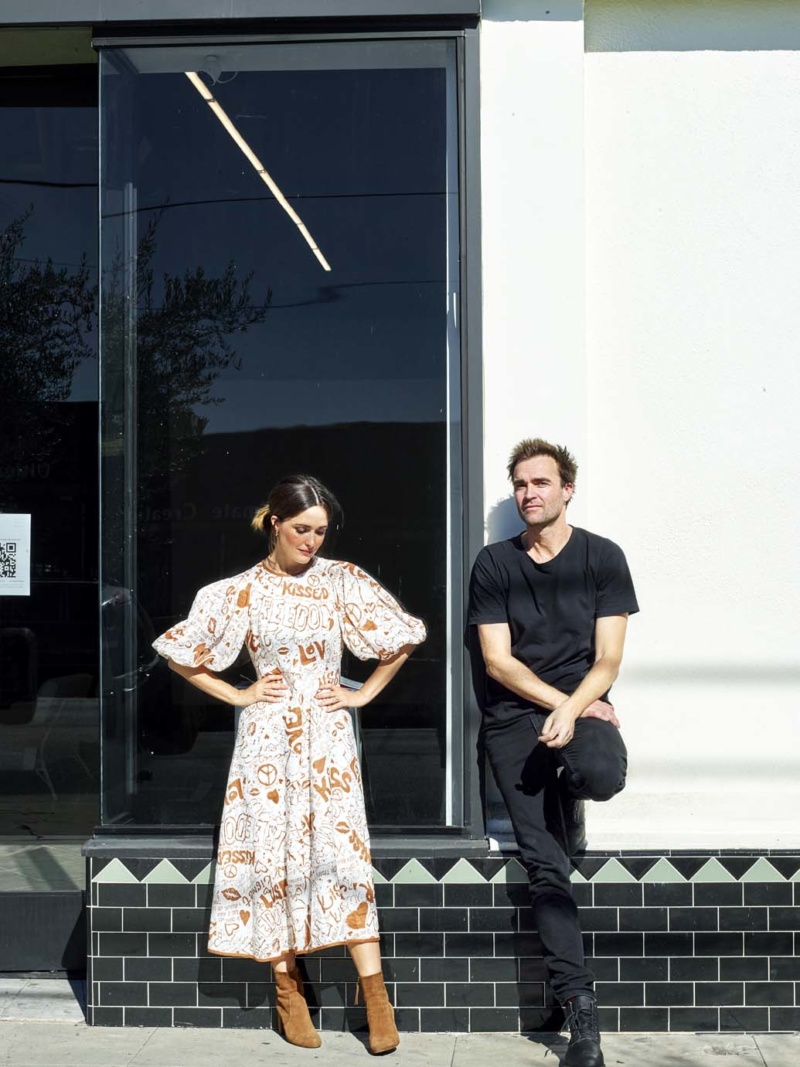
What’s the trait you admire most in the other?
RB: For George to generate such a name for himself, and to be so successful while continuing to find inspiration and new mediums, I admire that so much. There are different challenges with acting, there are highs and lows, but nothing really like having to kind of build a business like that. I find that incredible.
GB: What’s so funny is that I am the least well-suited to starting a business! With Rose, her humility, empathy and generosity is what I admire most in her. For someone who has done so well and is so respected and talented, I think she’s so incredibly humble. She’s unchanged, she’s grown and changed as a person, but her essence is the same as she was when she was fifteen.
If any limitations of budget and time were lifted, what’s your dream project?
GB: I’ve got a list! But I did just create a dream project: I self-published my first monograph, Post Truth, which was ten years in the making. It tracks really my whole time in Los Angeles and learning how to find the beauty in an urban landscape, and really honing my style and skills. I’d love to try tons of other things, make a record, experiment with film. I’d love to tour an exhibition around the world.
RB: Goodness me, yes, of course. My production company, Dollhouse Pictures, is shooting our first feature film in Australia right now and I wish we had more time and more money. It’s an ambitious film and it follows the world of impersonators, so that encompasses a lot of “looks” and sets and it’s going great, but there’s always part of me that wishes we had a little bit more of everything.
